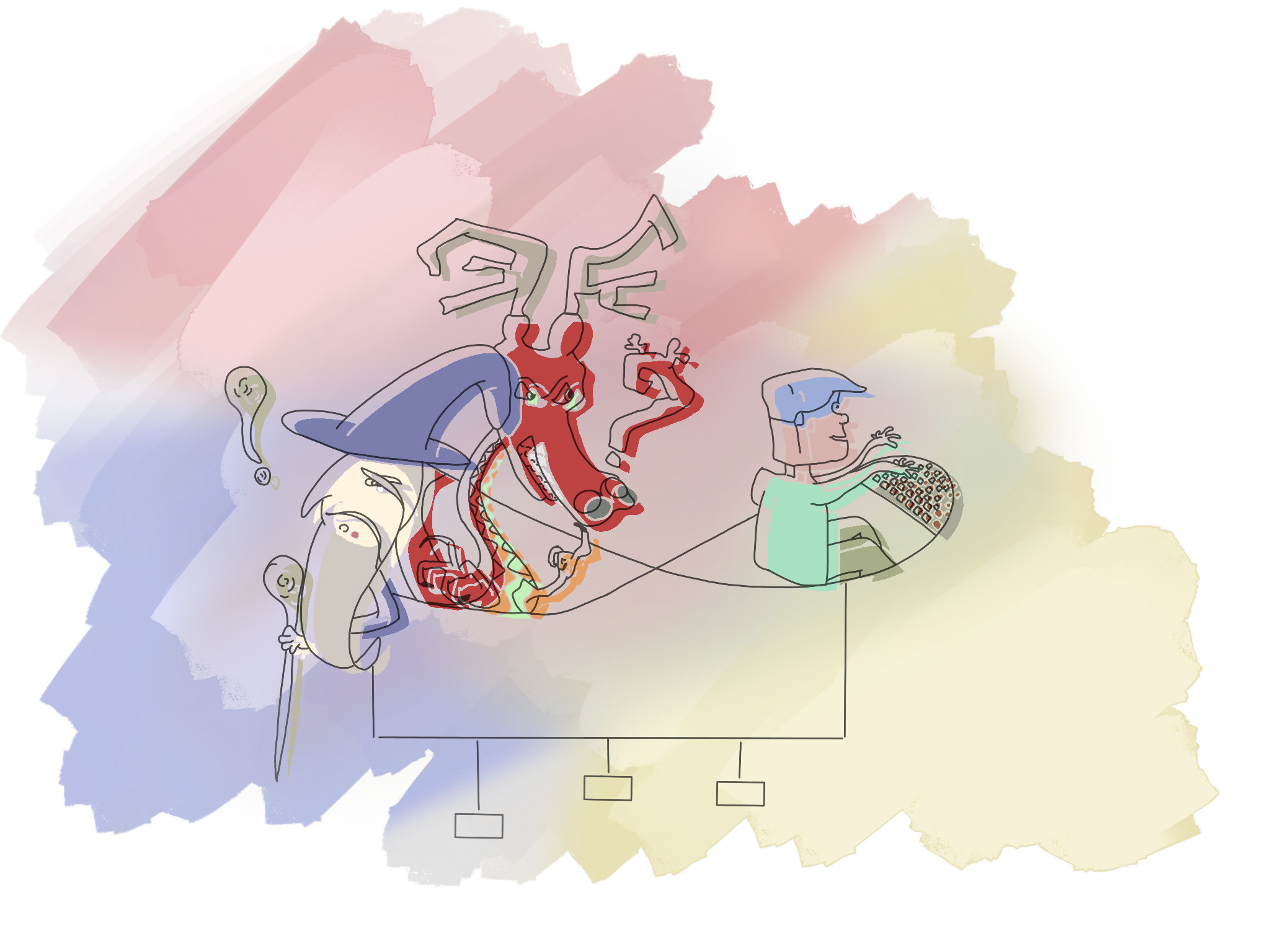When we play games, just like the kids we were, we suspend our beliefs (to a certain degree as grown-ups) on what is real or not. We choose to go on a trip of the mind and we pay for the trip by merging the fantastical with reality. believing the fictional to be the real makes the choices and dilemmas one faces in those fictional worlds seem true and important, the consequences more dire, and the threat more dangerous. All that serves our ultimate goal for playing games: engagement. So, choosing to enter the fictional world and believing its conditions and rules to be absolute and unyielding, that is the act of entering the magic circle. For without entering the magic circle, no game can be enjoyed, no matter how good it is supposed to be…
The act of entering the magic circle comes naturally to those who grew up playing video games, because as kids we didn’t have the clear distinction of what is real or not, and our fascination with games has placed them at the forefront of our realities. Now as grown-ups we unconsciously rekindle that old nostalgic flare of curiosity and submission when we play.
And as the act of play becomes a social norm and part of the public consciousness, so too does the level of engagement and immersion deepens; the occurrence of the magic circle becomes as common a sight as a convince store… Or does it? It is true that the more the activity is preformed by society the less awkward and out of place the individual might feel preforming it, but does that apply to games?
As games become more socially interconnected, that young and nostalgic part of us, that follower of the magic circle, might feel threatened, as this private seclusion becomes so crowded that it feels like a bubble about to burst.
—
It makes good sense here to mention that not all players play games for the same reasons, what some might deem a breach of privacy or a hole in the circle others might welcome as opportunities and rides they can hitch along the road to go deeper into the magic circle. A researcher and game designer called Richard Bartle published his research back in 1996 on a game he developed in the 70s. His research became known as Bartle’s taxonomy as it classified players into 4 different groups based on the reasons they play games. Players are classified into: Achievers / Explorers / Socializers / Killers.
Achievers are those who are interested in completing a game fully and unlocking every key aspect there is to it. They enjoy mastering the game and completing every challenge.
Explorers are those who are interested in getting to places that they shouldn’t be able to get to in the game world, they like finding hidden surprises and secret massages that might be left by the game developers.
Socializers are those who enjoy meeting and interacting with other players in the game world. They like to form groups and teams to tackle challenges, not necessarily for the sake of completing a challenge but for the sake of doing so with a group.
killers are those who enjoy beating others lesser in class or status than themselves in a game world. They might enter a group not for the sake of helping it reach its end goal but to be able to go against rivals and emerge victorious over them. This type may also enjoy causing harm to their own team and can be aggressive towards all other players.
This classification is considered nowadays a tool for designers to better design a game that caters to a specific type of players or a game that servers everyone’s needs. But the interest here is to look at the implications of such types on the now seemingly threatened magic circle.
—
The magic circle means the acknowledgment and agreement to a set of rules that govern a fictional system. And based on the taxonomy above, it seems that players have different ideas of what they are agreeing to when they enter a game world. Based on the brief description above, the first 2 types describe players that have a traditional mindset when entering a magic circle. They gravitate towards the same feel and experience the pre-internet gamers had when they booted a system. While the other 2 types are almost the opposite; they seek the experiences the post-internet gamers experience in this age of connectivity.
And so, should the expectations from a game, the rules a player agrees upon when entering a magic circle change based on the time and technology? Or should the players change their preferences and inclinations to adapt to a static set of rules we always found in games?
Looking at it from a moral stand point next time might help…


Recent Comments